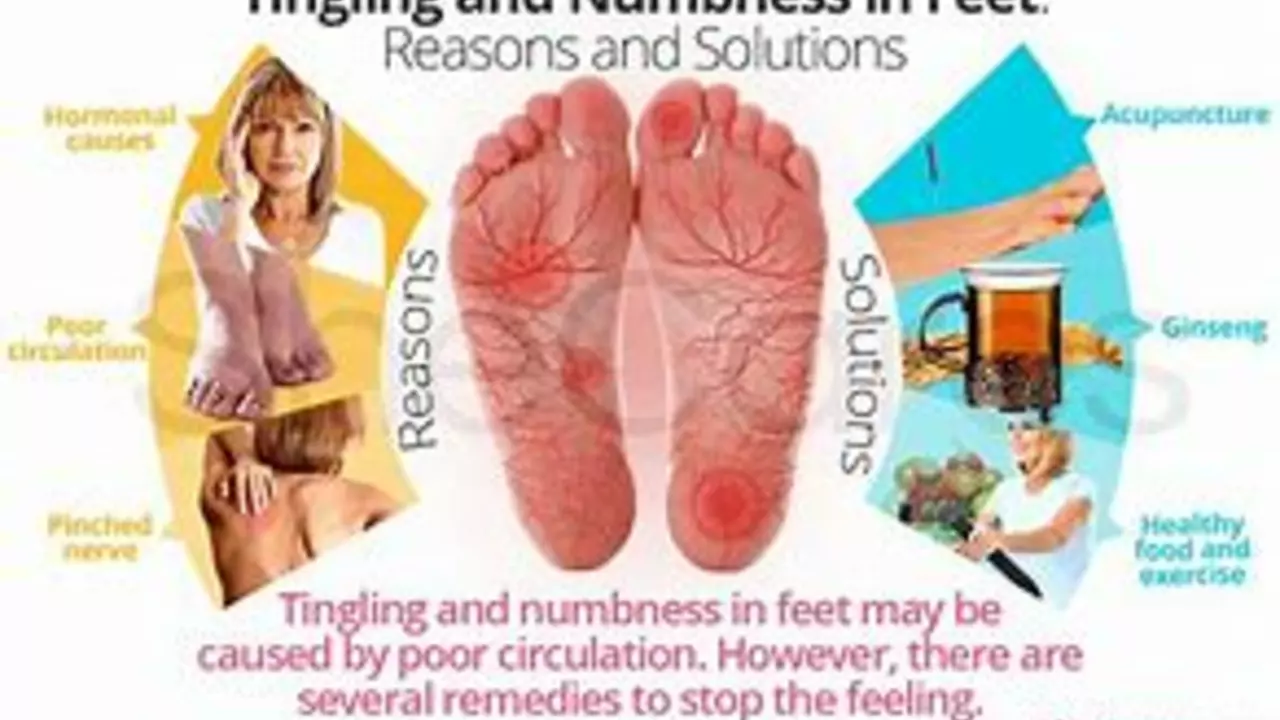Feet Numbness: Causes, Symptoms & Quick Relief
If your toes feel like they’ve fallen asleep and won’t wake up, you’re probably dealing with feet numbness. It’s a common problem that can show up after a long walk, a night of poor sleep, or even a stressful day at work. The good news is most cases are harmless and easy to fix. Below we’ll break down the main reasons your feet go numb, what signs mean you need a doctor, and some quick tricks to get feeling back.
What Causes Feet Numbness?
First off, pressure is a big culprit. Sitting cross‑legged, wearing tight shoes, or standing on one leg for too long can pinch nerves and cut off circulation. When blood can’t flow properly, the nerves send a “sleep” signal to your brain.
Second, nerve irritation from conditions like diabetes or peripheral neuropathy can make feet feel tingly or dead. High blood sugar damages nerves over time, so the numbness may come and go. If you have diabetes, keep your blood sugar in check and talk to a doctor about nerve health.
Third, vitamin deficiencies – especially B12 – play a role. Without enough B12, nerves don’t repair themselves well, leading to tingling or numbness in the feet and hands. A simple blood test can tell if you’re low, and a supplement often solves the issue.
Fourth, injuries like sprains or fractures can compress nerves directly. Even a minor ankle twist can cause swelling that presses on nerves, making the foot feel numb. If the numbness follows an injury and doesn’t fade in a day or two, get it checked.
Lastly, systemic issues such as thyroid problems or multiple sclerosis can cause numbness as part of broader symptoms. These are less common but worth ruling out if numbness is persistent and paired with other weird signs like fatigue or vision changes.
How to Relieve Numb Feet Fast
Start with movement. Stand up, walk around, and gently stretch your calves and ankles. This gets blood flowing and often wakes the nerves right away.
If tight shoes are the issue, change into something roomy with good arch support. Socks made of breathable material help too – they keep moisture away and reduce irritation.
Massage can be a game‑changer. Use your hands or a foam roller to rub the soles, heels, and arches for a couple of minutes. The pressure helps push fresh blood into the area.
Heat works well for chronic numbness. A warm foot bath for 10‑15 minutes or a heating pad can relax muscles and improve circulation. Just avoid temperatures that are too hot.
For nerve‑related numbness, over‑the‑counter supplements like B‑complex vitamins or magnesium can support nerve repair. Pair them with a balanced diet rich in leafy greens, nuts, and fish.
When to see a doctor? If numbness lasts more than a few days, spreads upward to the calf, or comes with pain, weakness, or loss of balance, get medical advice. Sudden numbness could signal a pinched nerve in the spine or a circulatory blockage that needs prompt care.
In short, most feet numbness is a temporary sign that something is pressing on nerves or blood flow. Adjusting posture, loosening shoes, moving around, and using heat or massage usually brings feeling back. Keep an eye on persistent cases and talk to a professional if you notice other symptoms. Your feet will thank you for the attention, and you’ll be back on your feet – literally – in no time.

Why are my feet numb in the morning?
by Davion Strider / 31 Jul 2023Oh boy, waking up to numb feet is like stumbling onto a dance floor with two left feet - puzzling and a bit alarming! Many of us might have experienced this mysterious morning numbness. There are several potential culprits, from sleeping in a funky position to more serious conditions like diabetes. Don't panic yet, though! Regular foot exercises and proper sleeping habits can help, but if the numbness persists, it's always wise to consult a doctor. It's a wild ride, my friends, but let's keep our feet feeling and not fearing!